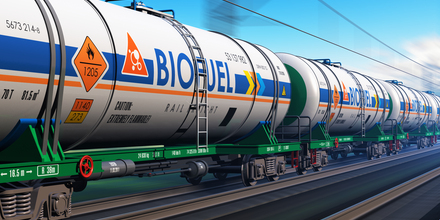Climate Change & Energy
Our Work
Latest in Energy
-

New report: delivering low carbon transport fuels post 2020
How should EU policy support the transition to low carbon transport fuels post 2020? A new IEEP led report argues that future policies should be differentiated to tailor support towards specific objectives and technologies that offer the greatest potential for a low carbon future.
-
New report is out: delivering low carbon transport fuels post 2020
How should EU policy support the transition to low carbon transport fuels post 2020? A new IEEP led report argues that future policies should be differentiated to tailor support towards specific objectives and technologies that offer the greatest potential for a low carbon future.
-
The Manual: Chapter 13 - Sectoral policies
This is a chapter of IEEP’s Manual of European Environmental Policy. This chapter sets out the development of some of the most important links between EU environmental policy and other policy areas, such as agriculture, forestry, fisheries, transport, trade, and so on.
-
Europe’s Climate and Energy Crossroads – IEEP seminars for MEPs on climate and energy issues
IEEP has prepared two briefing documents on the climate and energy challenge in Central and Eastern European Member States, and in Southern European Member States. The briefings are background for a seminar we are organising for Members of the European Parliament, the first in a series on Europe’s Climate and Energy Crossroads.
-
Ministers place biofuels in a policy vacuum
Energy Ministers today failed to agree reforms to the EU laws that promote the use of biofuels for transport. Current EU legislation is flawed and unfit for the purpose of delivering verifiable greenhouse gas emission reductions from the transport sector.
-
Alternative means of reducing CO2 emissions from UK road transport
Up to 2020 greater use of renewable electricity is the leading alternative to biofuels to reduce the carbon intensity of car and rail transport fuels. To realise this potential requires a mix of responses, including: increasing the decarbonisation of existing transport fuels; improving the energy efficiency of vehicles; and changing the way vehicles are used.
-
Systemic approach to adaptation to climate change and renewable energy harnessing (Biomass and Mini-hydro)
Biochar has the potential to both mitigate greenhouse gases, and to act as an adaptation measure in terms of responding to the impacts of climate change. Based on its compatibility with the appropriate soil properties, it could increase the resilience of soil to erosion.
Related
-

Developing a sustainable future for biofuels
Disseminating knowledge and informing the debate around the future of biofuel policy in the EU.
Highlights
-

New report: delivering low carbon transport fuels post 2020
How should EU policy support the transition to low carbon transport fuels post 2020? A new IEEP led report argues that future policies should be differentiated to tailor support towards specific objectives and technologies that offer the greatest potential for a low carbon future.
